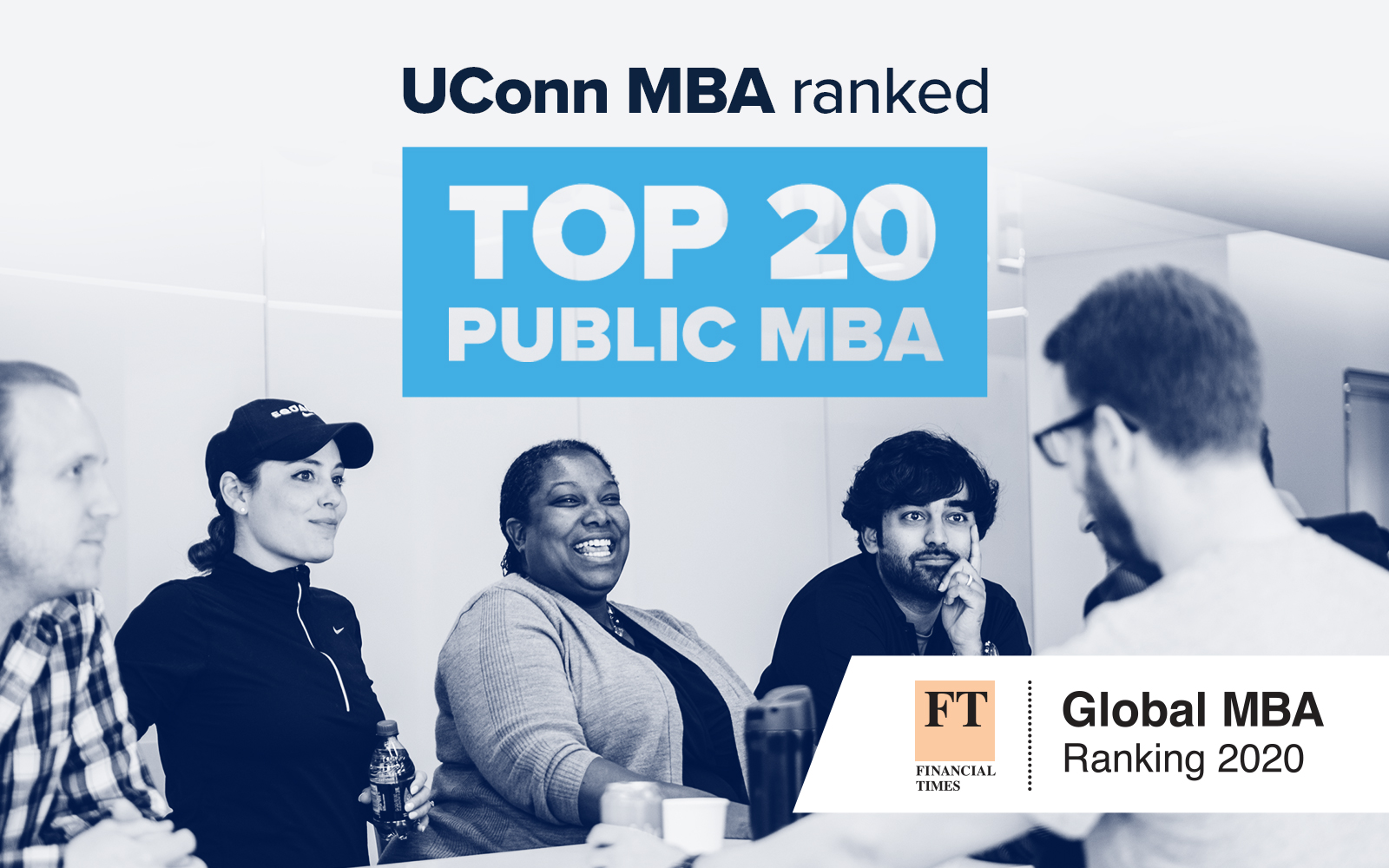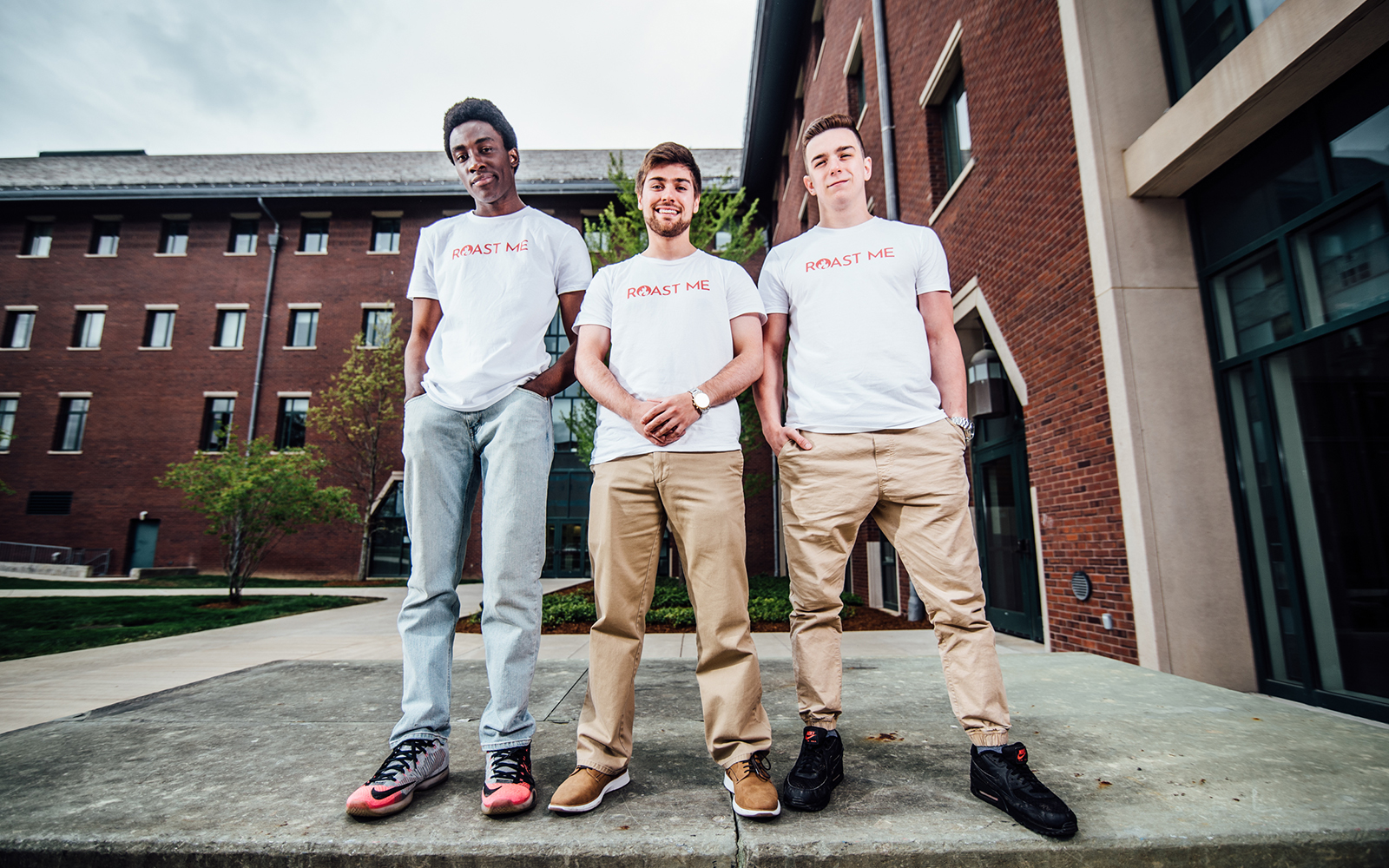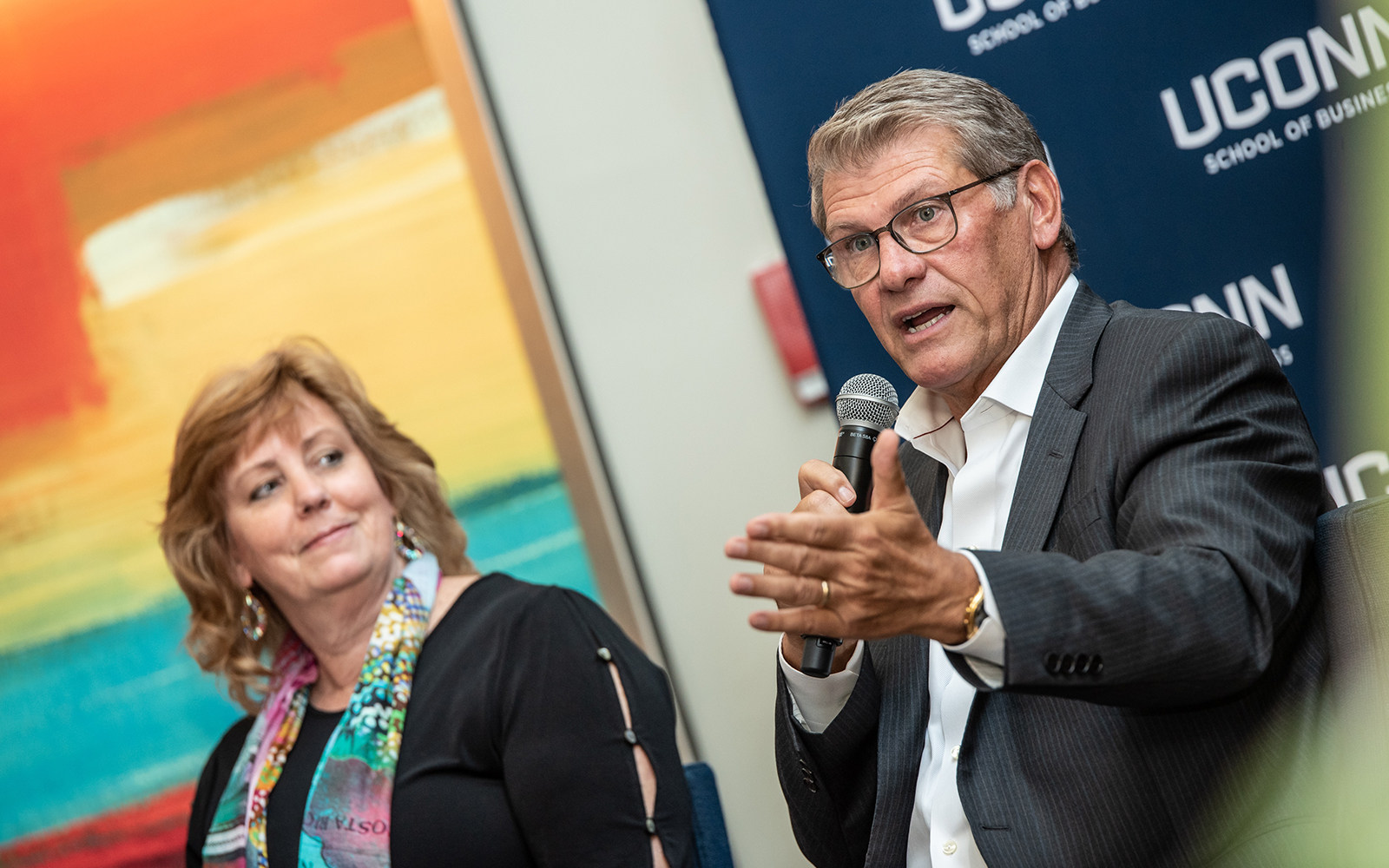
The Financial Times released its highly regarded 2020 MBA rankings today and the UConn MBA program was among the Top 20 public universities for its academic rigor.
The UConn MBA ranked No. 16, up from No. 20 last year, in the category of public MBA programs in the U.S. It also ranked No. 5 in value for the money compared with its public peer institutions.Continue Reading



